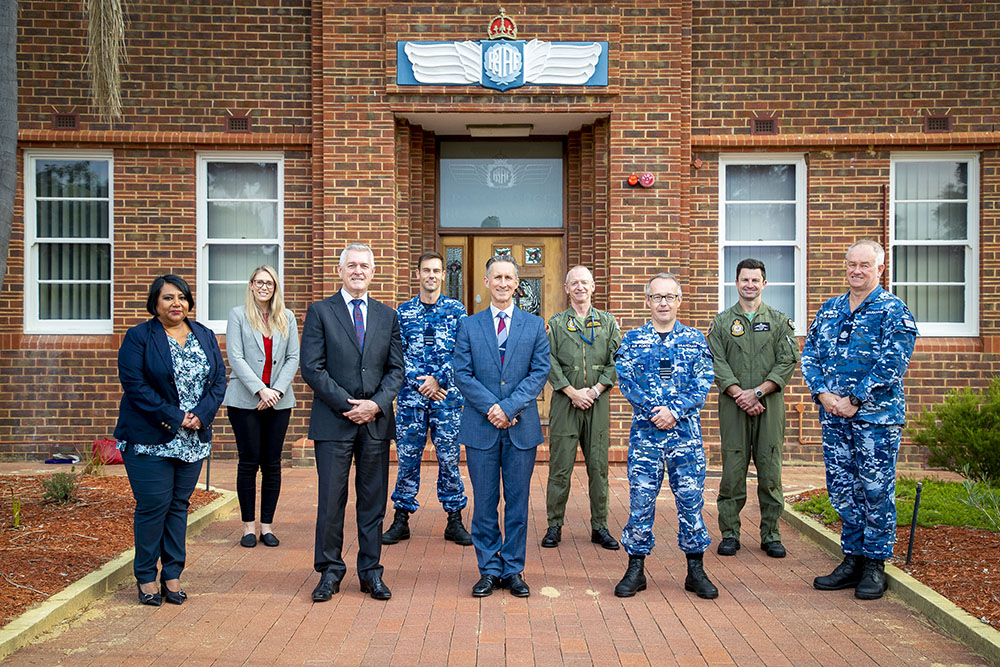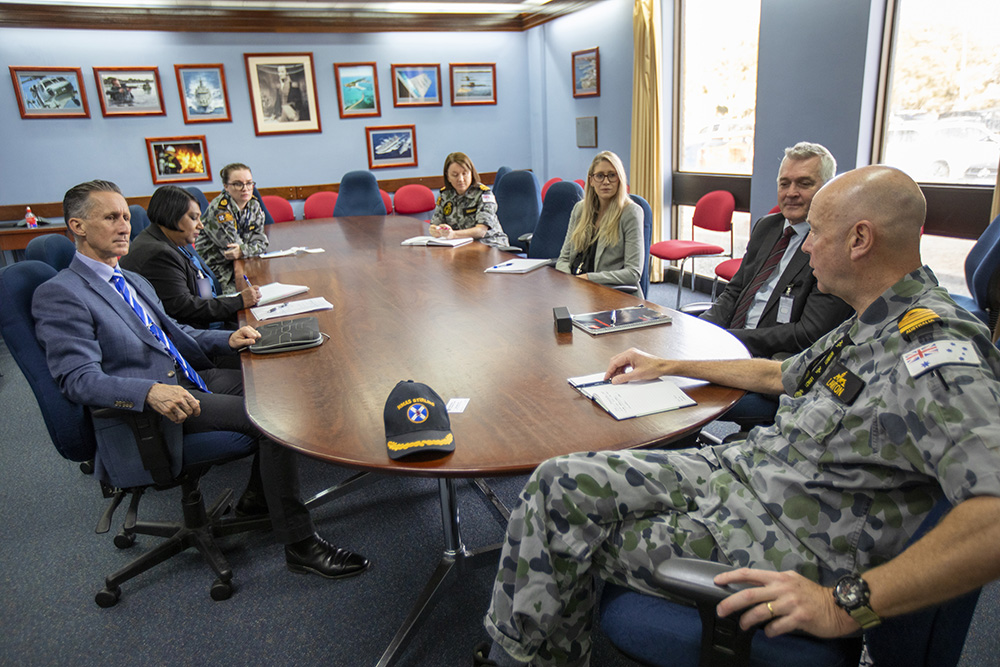Defence well engaged with DVA
Major General Stuart Smith AO DSC (Retd)
Defence Engagement Commissioner
After visiting bases across Brisbane, Darwin, Adelaide and Perth over recent weeks, I can confirm that Defence personnel are well engaged with DVA.
I have listened to base commanders, unit leaders, transition managers and personnel undergoing transition about their experience with DVA. It has been heartening to hear that 98% of personnel possess a DVA MyService account and White Card.
The high proportion of serving personnel registered with DVA is testimony to efforts by the department, in partnership with Defence, to engage with Australian Defence Force (ADF) personnel at the point of enlistment. Known as the Early Engagement Model, the intent is to ensure personnel avoid delays in accessing DVA administered health and wellbeing services when they transition from the ADF.
I noted 3 emerging themes when discussing DVA services with Defence leaders involved in managing personnel transitioning from the ADF. The first was a stronger awareness of veterans’ entitlements among soldiers, sailors and aviators. This is evidenced by a growth in the number of personnel registering their service-related injuries and illnesses with DVA should they need rehabilitation support when they leave the ADF. In fact, 55% of the 20,100 initial liability claims registered with DVA during the past 12 months are from Defence personnel. A challenge for DVA is to meet this growth in registrations, and additional financial and personnel resources have been allocated to the department in the 2021–22 Budget to do so.
A second theme was a strong level of cooperation between DVA and Defence transition management personnel. DVA’s Veteran Support Officers (VSOs), the ADF’s Member Support Coordinators (MSCs), and ADF Rehabilitation personnel are demonstrating effective partnerships at Darwin’s Robertson Barracks, Perth’s HMAS Stirling and Adelaide’s RAAF Edinburgh. In addition to prioritising support for personnel undergoing shorter notice medical or administrative transition from Defence, these partnerships are assisting ADF personnel to plan ahead for their transition from Defence from a wellbeing perspective. They are providing education and training beyond the traditional Transition Seminar events to encourage personnel to consider their housing, employment and social network options for the future, so that they might follow their service to nation with service to society.
The desire to serve society was a capstone theme in all my discussions with ADF personnel undergoing transition. I was fortunate to conduct some of these discussions at Veteran Wellbeing Centres in Adelaide and Perth, and recognise the potential these centres have for providing pathways for ADF personnel and their families to connect with society. The presence of a local ex-service organisation at one Wellbeing Centre is providing an opportunity for veterans to continue their service through local community projects, and this might be an example for other centres.
In addition to observing the current level of cooperation between Defence and DVA, base visits allow me to develop an understanding of the current nature of service experienced by ADF personnel. The emerging nature of service is characterised by short-notice domestic support and prolonged regional deployments in the Indo-Pacific. The next generation of veterans is therefore likely to have a different set of experiences compared to be our Middle East generation of veterans.
I was also able to visualise the likely impact of the 2020 Defence Strategic Update and 2020 Force Structure Plan on Defence and DVA. It is important to understand the impact on current DVA support services, such as DVA VSOs and Open Arms peer engagement teams, wherever there is likely to be an increase in the number of ADF personnel at a regional base.
I have scheduled visits to bases in Sydney, Townsville, Tindal and Woomera in the future. These visits are vital for the Repatriation Commission to advise DVA on improvements to supporting serving personnel and their families now, and for the future.


From left: Research Officer Defence Engagement Shareen Singh; DVA Support Officer Belinda Crawley; DVA Deputy Commissioner Western Australia Peter King; Squadron Leader Nicholas Bird; Defence Engagement Commissioner Major General Stuart Smith AO DSC (Ret’d); Wing Commander Grahame Williams; Senior ADF Officer Wing Commander Andrew Brandham; Wing Commander Grant Taylor; Warrant Officer John Markham at RAAF Base Pearce, Western Australia.
Defence Engagement Commissioner Major General Stuart Smith AO, DSC, (Ret’d), speaks with HMAS Stirling Commanding Officer, Captain Gary Lawton, RAN during a visit to Stirling in Western Australia.
